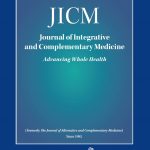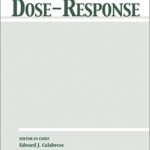Pathak S, Kumar Das J, Jyoti Biswas S, Khuda-Bukhsh A
Protective potentials of a homeo drug, Lycopodium-30, in ameliorating azo dye induced hepatocarcinogenesis in mice
Molecular Cell Biochem, 2006, 285 (1-2), 121-131

The protective potentials of a potentized homeopathic drug, Lycopodium-30, prepared from extract of spores of a plant, Lyocopodium clavatum (Fam: Lycopodiaceae) and used as a remedy for various liver ailments, have been tested in mice chronically fed p-dimethyl amino azo benzene (p-DAB) - an initiator, and phenobarbital (PB) - a promoter of hepatic cancer, by using some cytogenetic endpoints like chromosome aberrations (CA), micronuclei (MN), mitotic index (MI) and sperm head abnormality (SHA), and toxicity biomarkers like acid and alkaline phosphatases (AcP and AlkP, respectively), alanine and aspartate amino transferases (ALT and AST, respectively) and lipid peroxidation (LPO) and reduced glutathione (GSH) activities. The effects of chronic treatment of the carcinogens were assessed at different intervals of fixation, namely, at day 7, 15, 30, 60, 90 and day 120, and compared with that of mice fed conjointly with the carcinogens and the homeopathic remedy. Both the assay systems indicated considerable protective potentials of the homeopathic remedy against p-DAB induced hepatocarcinogenesis in mice.







